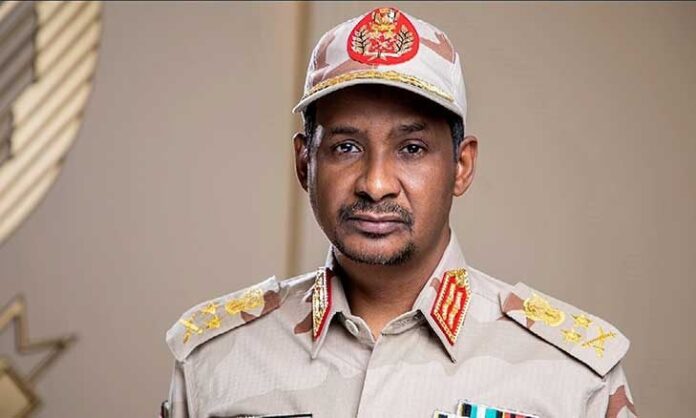KHARTOUM — In a shocking new incident that adds to a growing record of abuses against civilians, a video has surfaced showing a soldier from Sudan’s Rapid Support Forces (RSF) carrying out a field execution of an unarmed man on the outskirts of El Fasher, in western Sudan.
The footage, which circulated widely on social media, sparked condemnation from political and civil groups and renewed calls for an international investigation and accountability for those responsible.
In the video, the soldier is seen questioning the victim about his tribe and the whereabouts of a local military commander before shooting him, ignoring his pleas. The man can be heard saying, “Please, don’t kill me. I am a civilian,” a phrase that has resonated across Sudan and triggered deep anger and sorrow.
The soldier ignored the pleas and shot him dead in what rights advocates have described as a “full-fledged war crime.”
This is not the first such incident. The RSF itself has previously documented and circulated videos showing executions of civilians and prisoners in Khartoum, Gezira state, Darfur, and other regions.
Reactions condemning the killing poured in from across Sudan’s political and civil spectrum.
Parties call for international probe
The Unionist Gathering party said in a statement that the crime “amounts to a crime against humanity,” stressing it was “not an isolated violation but part of a recurring pattern of systematic targeting of civilians.”
The party warned that extrajudicial killings represent “a blatant violation of international humanitarian law and of all moral values,” and called for an independent and transparent investigation, with those responsible brought to justice. It pledged to work with national and international partners to stop the war and protect civilians.
The National Umma Party described the incident as “a war crime in every sense of the term” and called for accountability of those involved, including RSF leaders it said bore direct responsibility.
It said the killing was part of a broader strategy of “murder and terror” employed by the RSF in several Sudanese cities and urged the United Nations and the international community to document what it called a “chain of crimes” against civilians.
“A crime that shakes the conscience”
Omar al-Digair, leader of the Congress Party, said the killing “shakes every living conscience and represents the ugliest form of contempt for human life and dignity.”
He reiterated demands for an independent probe into this and other wartime violations, stressing that only a comprehensive political solution could end Sudan’s bloodshed.
“The continuation of war means more killings, violations and destruction,” he said, calling for an immediate halt to military operations and national dialogue to end what he described as “the systematic assault on Sudanese lives.”
Darfur regional governor and Sudan Liberation Movement leader Minni Arko Minnawi described the RSF as a “terrorist militia” responsible for “the worst kinds of crimes, from genocide to ethnic cleansing” in Darfur. He accused the world of “standing by as massacres continued, satisfied with seeing images of victims and hearing the cries of the besieged without acting.”
He directed sharp criticism at political forces allied with the RSF, saying: “What kind of foundation is built on blood and massacres?” — a reference to the “Tasis” alliance, the RSF’s political wing. He warned that “a response is coming” and vowed to “break the siege” of El Fasher, telling the group’s opponents that “exile will be their only refuge.”
RSF political ally promises investigation
In response, the Tasis alliance, the RSF’s political arm, issued a statement condemning the killing and pledging the group’s commitment to protecting civilians and upholding international humanitarian law.
The alliance said it had launched “immediate verification and investigation procedures” in cooperation with the Raslanda organization to determine the perpetrator’s identity and punish him if confirmed to be a member of the force.
It stressed that such acts “contradict military and moral values” and insisted there was no room for violations of civilians’ rights within the RSF.
The alliance linked the rise in abuses to the ongoing war with what it called the “Port Sudan group,” referring to government-aligned regular forces, accusing them of fueling hatred and racism in society.


